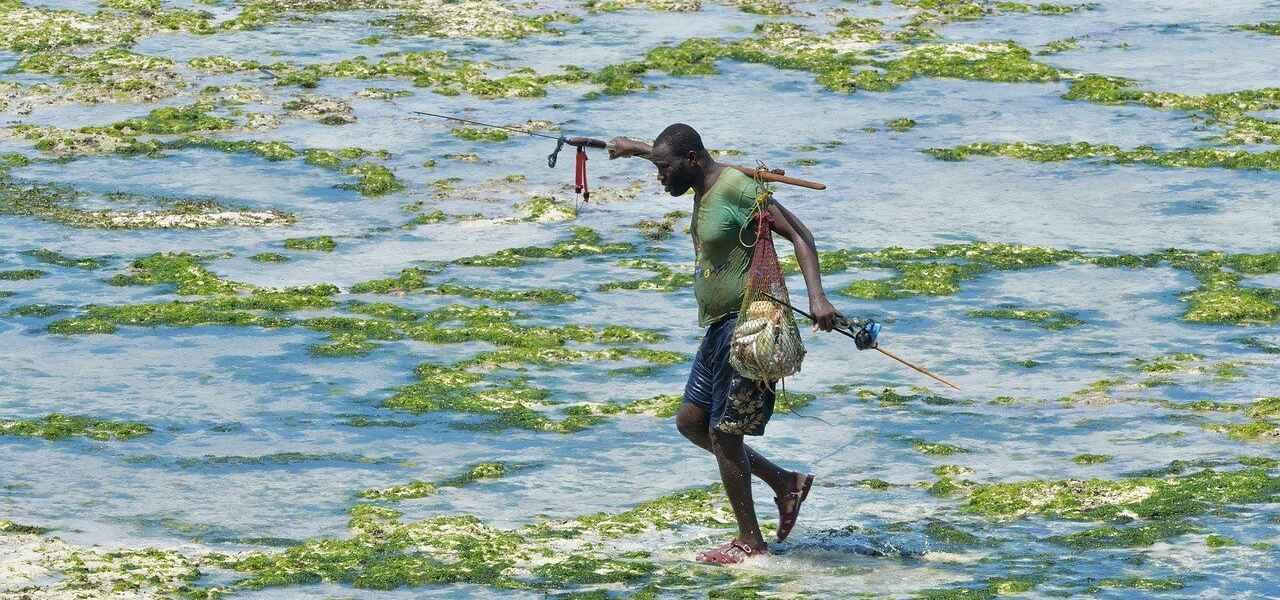By Dr. Philip A. Loring, Arrell Chair in Food, Policy, and Society and Richard A. Nyiawung, PhD candidate in Geography and International Development Studies
This article is republished from The Conversation Canada under a Creative Commons licence. Read the original article.
From Senegal through Ghana to Cameroon, small-scale fishing is both a livelihood and a way of life for people in coastal parts of West and Central Africa, with more than two million small-scale fishers. It has been this way for centuries – but that is changing.
Fishers are faced with diminishing fish stocks, competition from foreign industrial fleets, illegal fishing, unstable governance, and a lack of infrastructure to support fishing operations. Small-scale fisheries in these countries, as in other areas of the global south, are often part of the informal economy. Despite being critical to local livelihoods – across sectors, informal employment accounts for over 80% of all employment on the continent – small-scale fisheries are generally not regulated or protected by the state.
The COVID-19 pandemic only worsened the situation. It brought many aspects of food and seafood supply chains to a halt. Fisherfolk and coastal communities in West and Central Africa were severely affected.
Our newly published research from Cameroon and Liberia studied these effects. We found that small-scale fisheries brought in fewer fish and less income. Fish wastage was also a bigger problem than usual because storage facilities weren’t available for fisherfolks.
These experiences, coupled with the sector’s bigger systemic problems before the pandemic, deserve attention. Fishing communities in West and Central Africa receive little attention from academics and policymakers despite their contribution to the region’s food security and employment economics.
From better ocean stewardship activities to better governance of these resources and those who depend on them, there is much to be done for small-scale fisheries in this region. There is a need for better innovations and policies to help improve the fisheries sector in this region.
Vibrant, diverse fisheries
Small-scale fishers in West and Central Africa have a great deal to tell researchers. Small-scale fisheries are central to food and nutritional security.

They are also remarkably multicultural. It is common to see people from other nationalities settled and fishing in a neighbouring country. In Cameroon, for example, our research has shown that many fisherfolks are migrants from Ghana and Nigeria. Similarly, fishers in Liberia are mostly Ghanaians who have obtained fishing permits to fish in the country.
These patterns of migration result in highly culturally diverse fishing communities; fishers bring not just their families to these neighbouring countries but also their traditions and customs. However, this brings in problems in terms of access and mobilisation of collective efforts to address problems as they arise.
COVID-19 exacerbated existing threats to this important informal sector. For instance, it confirmed how the lack of robust governance systems at the state level leaves workers vulnerable to shocks like pandemics and climate change impacts. Workers in these fisheries rarely benefit from any sort of state protections or services related to their employment and occupational safety.
They also don’t have access to the kind of infrastructure that might have kept fish fresh for longer during periods when markets weren’t open or people were afraid to leave their homes because of the pandemic. One Liberian fisher told us:
“COVID-19 affects our business greatly. Like before, we used to have many customers coming to buy our fresh fish at the beach, but currently, our mothers dry the fish we caught and take to the market. After weeks from drying the fish and they are not bought it gets spoiled.”
So, how can small-scale fishers in these countries be better supported?
The need for action
The UN Sustainable Development Goal 14 emphasises the need to conserve ocean resources and to use them sustainably.
Coastal populations are growing, and the dependency on fishing and the ocean in these places will continue to increase. Coastal dwellers’ wellbeing and livelihood are at risk – and that’s a threat to both the short and long-term resilience of the fish food system in West and Central Africa.
With increasing environmental stresses and emerging systemic shocks such as COVID-19, there is a need for action to not only achieve this but also to ensure the well-being of those who depend on these resources.
For example, the digitalisation of the fisheries sector could be a sustainable response approach to shocks. In North America, fisherfolks use digital services such as smartphone apps to sell and deliver seafood to the consumer. This could be replicated in West and Central Africa. Fisherfolks can use local telephone networks and e-money services to facilitate communications and transactions.
Also, the establishment of community supported fisheries programmes can help reorganise local fish marketing, reduce fish losses across the value chain, and build community resilience to shocks.
Whatever approach is taken, it’s crucial to include the fishers themselves in discussing possible pathways forward. They can help guide policy makers on how to ensure sustainable fisheries practices. Regional and international bodies also need to get more involved by providing funding and institutional support to enhance the fisheries sector.
